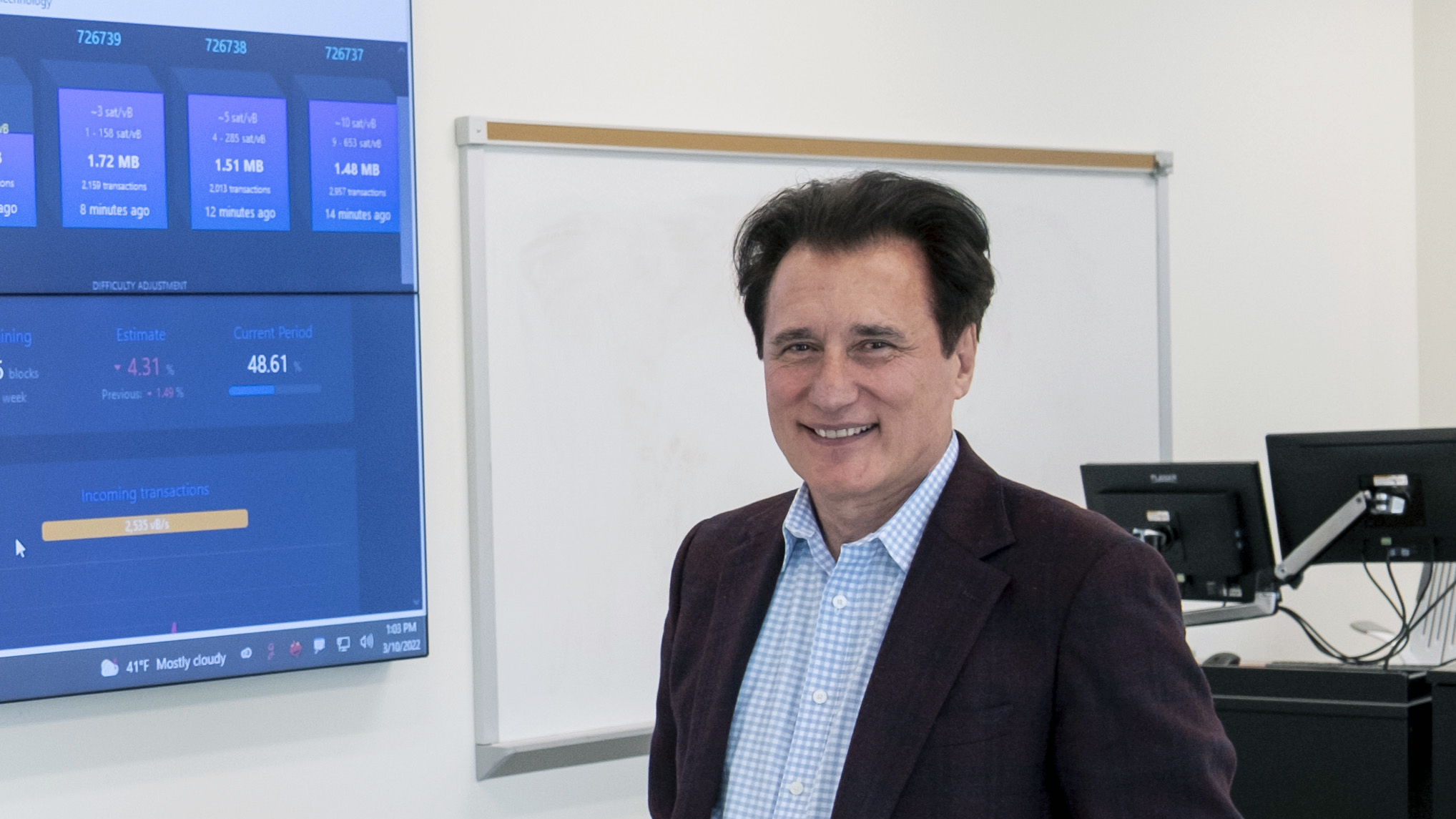
Professor and Chair of the Finance Department Nasser Arshadi is working to increase the financial technology, or Fintech, course offerings in the UMSL College of Business Administration. (Photo by August Jennewein)
Blockchain technology – a digital, public ledger distributed across a computer network – has revolutionized the financial sector by making it possible to perform transactions without intermediaries, such as banks.
The technology has made cryptocurrency possible and wasn’t widely known to the public until Bitcoin exploded in value in the summer of 2010.
“It makes transactions cheaper, safer and faster because when you have all these intermediaries, they bring in possible errors and a host of other potential problems,” said Nasser Arshadi, professor and chair of the finance department at the University of Missouri–St. Louis.
There’s no putting cryptocurrency or blockchain back in the box, and it’s only the first wave of technology that will continue to change finance in the U.S. and worldwide. It’s increasingly important that people in the workforce are educated and prepared to work at the intersection of finance and technology.
In response to this growing need, the finance department has been at work for the last three years growing Fintech – financial technology – offerings. Currently, the College of Business Administration offers courses at the undergraduate and graduate levels, an undergraduate Fintech track, and a graduate certificate.
They also hope to offer a master’s in FinTech in the not-too-distant future.
“We in the department are pretty excited about that, whenever it becomes available because we think there is a high demand for this field in the marketplace,” Arshadi said. “Graduates of such programs will be in high demand in not only current financial institutions that really want that expertise but also in the startup sector.”
Currently, the department has five faculty members who teach various aspects of Fintech – everything from blockchain to artificial intelligence – to a wide swath of business students, including those on the official track or certificate. Additionally, some of the other University of Missouri System campuses have expressed interest in sharing some courses across institutions, which would help increase student demand for the growing focus.
Graduates with Fintech expertise can expect to be in demand in a variety of jobs, including wealth management, brokerage, and real estate, where blockchain and artificial intelligence have the potential to replace or complement human advisors.
“There’s some level of robo advising going on,” Arshadi said. “But artificial intelligence is much more sophisticated than that and can catch a whole host of opportunities that you previously didn’t think about.”
While services such as Paypal or Venmo provide convenience, they are still intermediaries that add to the overall cost of transactions.
“Fintech outlets built on blockchain will offer less costly solutions,” he said.














